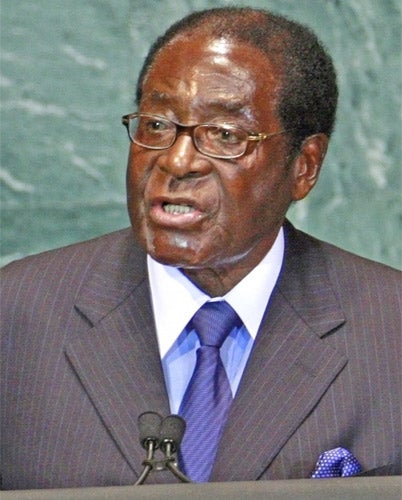Fight against African kleptocrats to go global after milestone ruling in France
Money-laundering inquiry given access to African leaders' assets

Anti-corruption campaigners have called on Western governments to follow France's lead in allowing an investigation into the assets of three African leaders accused of looting their countries to fund lavish purchases in the rich world.
Huguette Labelle, the head of global anti-corruption watchdog Transparency International, said the high court decision in Paris to allow a judicial inquiry into the French assets of the leaders of Equatorial Guinea, the Republic of Congo, and the former leader of Gabon, was a "milestone" and a "deterrent" against future theft.
She called on the G20 club of rich nations meeting today in South Korea to act on its commitment to combat money laundering and back the "French model" which allows European courts to go after assets bought with the proceeds of corruption.
"This is going to be a very important case for the anti-corruption movement worldwide," said Ms Labelle, speaking from Thailand. "People in these countries know their money is being stolen and this can help to create a new sense that something can be done about it."
A 2007 investigation into the French holdings of President Denis Sassou-Nguesso of Congo, President Teodoro Obiang Nguema of Equatorial Guinea and Omar Bongo, Gabon's then-president, uncovered assets worth tens of millions of pounds.
These "ill-gotten gains", as they came to be known, included hundreds of bank accounts; a fleet of Ferraris and Bugattis worth more than €3m and, in the case of Mr Bongo, who died last year, nearly 40 properties in Paris' exclusive 16th district. In each case the value of the assets bore no relation to the declared income of the individuals.
Tuesday's victory, which saw France's highest court clear the way for a full judicial investigation into the origin of the leaders' assets, came after three years of legal battles. The accused have all denied any wrongdoing.
The appeal court ruling raises the prospect of serving African heads of state being tried for corruption in the French courts. It also sets a precedent allowing an alliance of non-governmental organisations to bring a criminal action in a "public interest" case. "So much money has been taken out [of Africa]," said Ms Labelle. "When there's enough evidence we need to have these public interest cases taken to court."
The French inquiry is expected to shed light on the role of European banks in laundering stolen money.
Britain's Michael Sullivan, QC, was among a group of lawyers to give his backing to this week's ruling and call for courts in the West to be used to trace the proceeds of corruption in Africa
"The main reason for doing this isn't because it's easier to get a result in a Western court," he said. "It's because the fraud is often centred around money laundered through Western banks."
Mr Sullivan led an investigation into money allegedly stolen by former president of Zambia, Frederick Chiluba, which uncovered $56m worth of assets. The southern African nation took its former leader to court in the UK in 2007 after investigators uncovered an extraordinary decade of spending.
The legal aciton, led by Mr Sullivan described accounts in the UK, Switzerland and the Caribbean, that had been used to cover the president's lavish spending under the pretence of financing overseas intelligence operations.
After the court in London found against him, Mr Chiluba was acquitted in a criminal action in Zambia last year. Despite that setback Mr Sullivan said that African courts would be unable to follow the financial trail even if there was the political will to do so and only Western courts could compel the disclosure of bank records.
The intervention of Western courts in the affairs of African leaders has been attacked as "neo-colonialism" by the supporters of some regimes. However, there was widespread support for the French decision. "Our governments are the perpetrators of corruption and their successors tend to forgive them," said Mwalimu Mati, of the political watchdog, Mars Group Kenya.
"The argument that this is neo-colonialism only favours the continued looting of Africa," he said. "Africans should get their money back."
Subscribe to Independent Premium to bookmark this article
Want to bookmark your favourite articles and stories to read or reference later? Start your Independent Premium subscription today.

Join our commenting forum
Join thought-provoking conversations, follow other Independent readers and see their replies